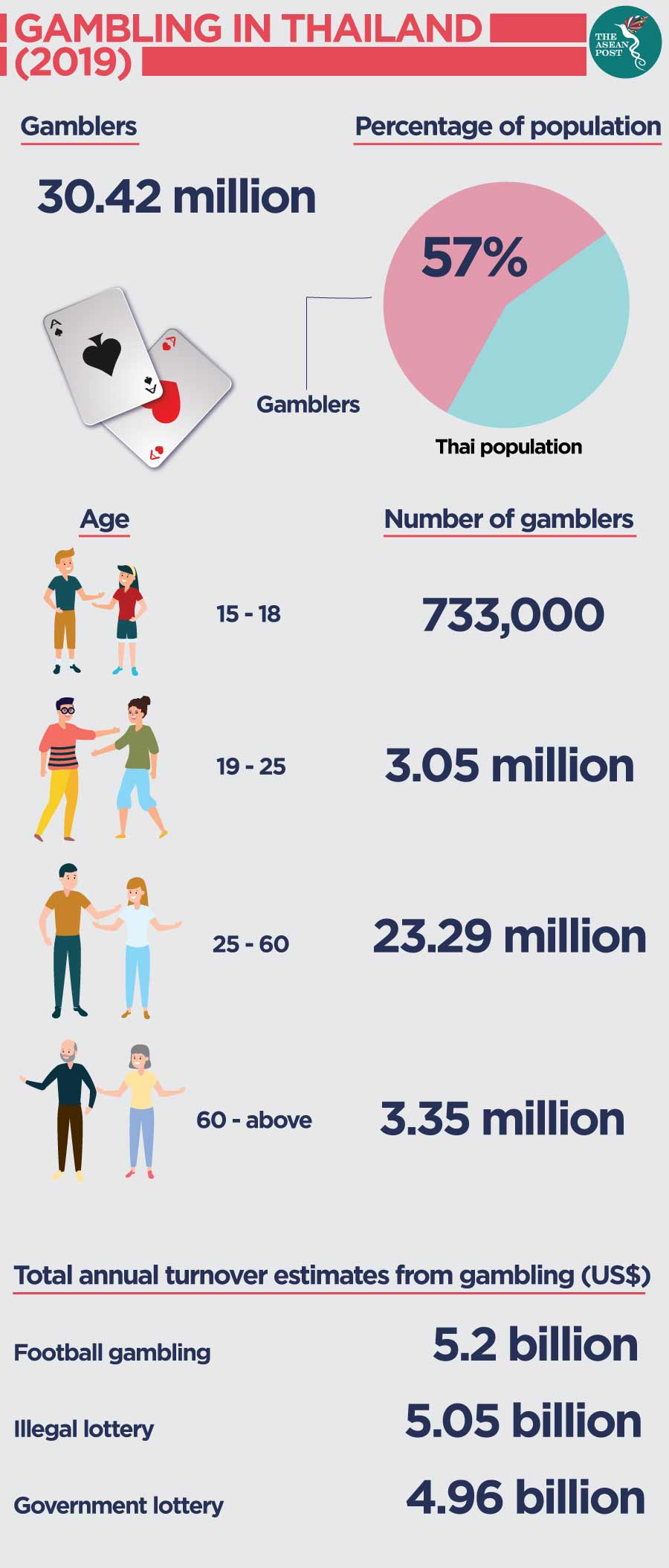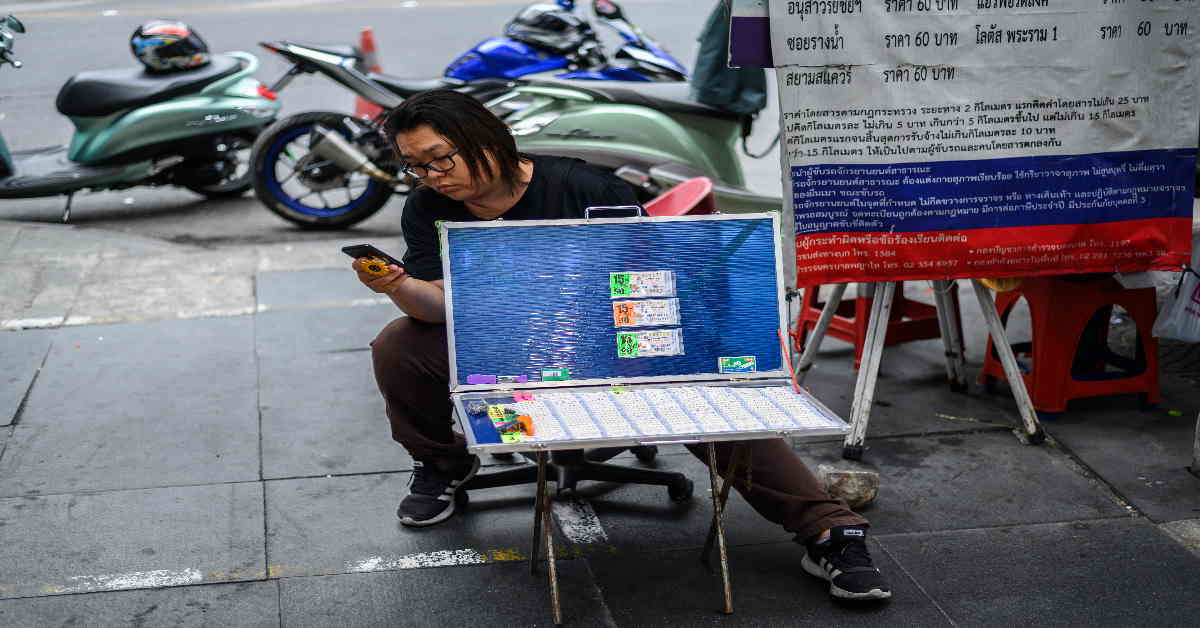Early this month, the Thai Health Promotion Foundation hosted a meeting in order to discuss the gambling situation in Thailand in 2019. Also present at this meeting were the Centre for Gambling Studies, Stop Gambling Foundation and other related associations.
The meeting was set up following a report by the Research Centre for Social and Business Development which revealed that more than half (57 percent) of the Thai population, or approximately 30.42 million people, gambled. The director-general of the Centre for Gambling Studies, Faculty of Economics at Chulalongkorn University, Nualnoi Trirat, shared the report which was based on data collected from a survey of 44,050 people aged over 15 across 77 provinces.
The 30.42 million figure this year is an increase of 1.49 million people from 2017. While the majority of Thai gamblers are of working age, 733,000 (2.4 percent of the total) of those who gambled this year were aged between 15 to 18 years old. This means that 20.9 percent of that age group are gambling.
You know there is a serious problem when one out of every five 15 to 18-year-olds in your country is gambling. But finding a specific cause as to what is creating this problem is easier said than done. Often-times, as is the case with gambling among adults, there can be a host of factors at play here.
According to the California Council on Problem Gambling, youth, like everyone else, gamble for a lot of different reasons. Among some of these reasons are: entertainment; socialisation; competition; to escape problems; loneliness, depression or boredom; to get rich quick; impress others; be the centre of attention; make new friends; and because winning provides an instant, temporary boost of confidence.
“We don’t know all of the reasons, but we know that entertainment, socialisation and competition are some of the biggest,” the council said on its official website.

In Thailand’s case, especially when dealing with gamblers who are young, it’s important to look at depression.
Gambling and depression
While the California Council on Problem Gambling lists depression as one of the reasons youth turn to gambling, depression can just as easily be an effect as it is a cause. This is especially important to note in a country like Thailand.
On 25 September, The ASEAN Post (TAP) published an article in which special focus was given to depression plaguing the nation’s youth.
In that article it was noted that in December 2017, Thailand’s Department of Mental Health (DMH) then director general Boonruang Trairuangworawat was quoted as saying that an estimated one million teenagers suffer clinical depression, many of whom are going untreated. On top of that, while the estimated one million teenagers are believed to suffer from depression, Boonraung added that two million more are at risk, making an upward of three million among a population of eight million teens then.
More recently, in June, current DMH director general Kiattibhoom Vongrachit told local media that the country’s young people now have an increased risk of depression and suicide. In the first six months of this year, 40,635 calls were made to DMH’s hotline; 13,658 of calls were from children and young people aged between 11 and 25 years old. This was compared to 70,543 calls made to the hotline in the whole of 2018. 10,928 were from the 11 to 19 age group and 14,173 from the 20 to 25 age group.
The DMH said that stress and anxiety may affect a student’s ability to concentrate and perform well at school, and they may show several warning signs, such as lack of attention, loss of interest in daily activities, lethargy, sadness, and sleeping issues.
In April 2017, the Algamus Recovery Centre, a United States-based gambling-specific residential treatment centre, noted that depression and gambling went hand in hand.
“Your depression may have caused you to turn to gambling in the first place, to help alleviate feelings of loneliness, boredom or to give you a boost when you were feeling down. It’s important to consider both your depression and gambling addiction when seeking treatment because each disorder can intensify the symptoms of the other. If you’re feeling depressed, you’ll be looking for ways to boost your mood and the thought of winning at gambling may seem like a good solution,” wrote Rick Benson, founder of Algamus.
It is clear here that depression and gambling have an unhealthy symbiotic relationship with one another. The unfortunate case in Thailand is that it is affecting children too.
Related articles:
